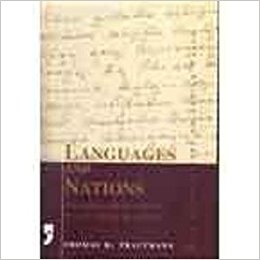This book is a part of the series on New Perspectives on Indian Pasts edited by Saurabh Dube. The theoretical premises that underline the need for such a series are as follows: (1) that formal academic histories and historical thought have tended to authenticate given structures of power and meaning; (2) that visions of the past are rooted in contemporary political interrogations and contestations, particularly when questions related to identity, tradition and culture have been raised; (3) that a ‘history without warranty’ which reexamines contested terrains while attempting to capture ‘the necessary, ethical, and unavoidable character of vital conceptualizations of the world and ourselves’ is a step forward in reconciling the tensions between the particulars and the universals of history writing (pp. viii-x). The work under review is the fourth to be published in this series, and the second by Trautmann. (His earlier book Aryans and British India had been reviewed by Meena Bhargava in The Book Review, vol. 29, No. 8).
Trautmann contends in his ‘Preface’ and in his earlier work that the European understanding of languages being historically linked to race resulted in the burgeoning of opinions on invasion theories—in India taking the form of the ‘white’ Aryan vs. the ‘black’ Dravidian, and an explosion in the field of comparative philology. This book is, in that sense, the Siamese twin of the previous one —while the former focused on the relation between Sanskrit and the Indo-Aryan family of languages, the latter studies Tamil and its umbilical cord with the Dravidian language family.

